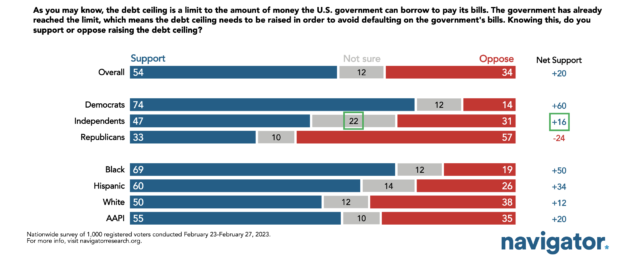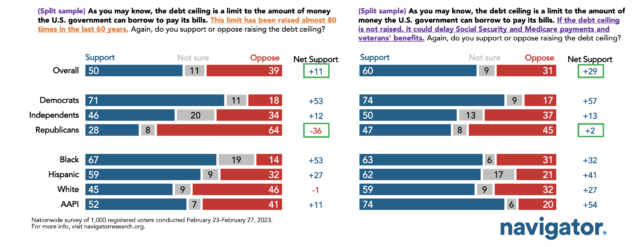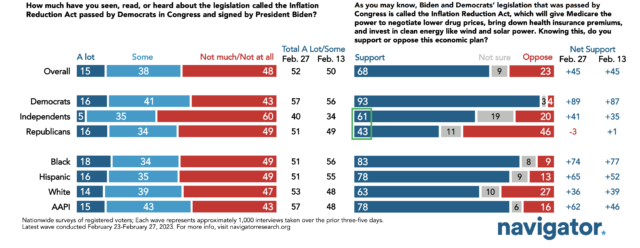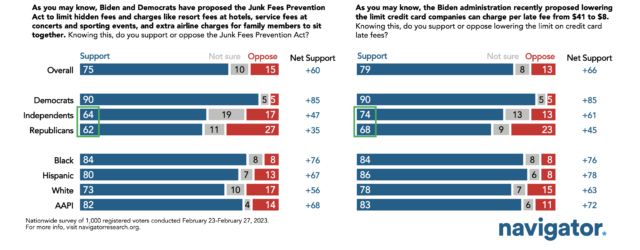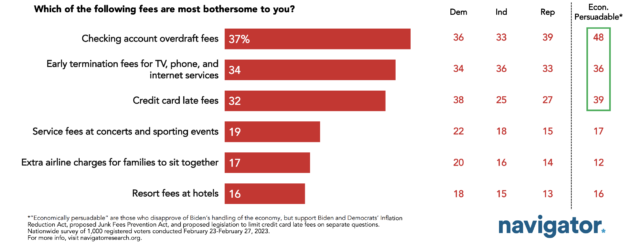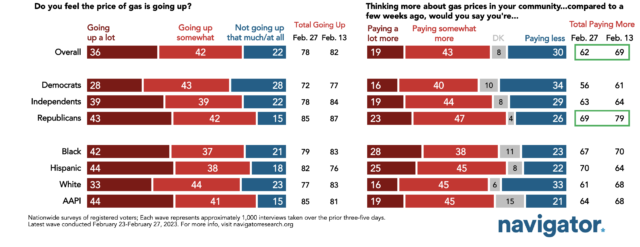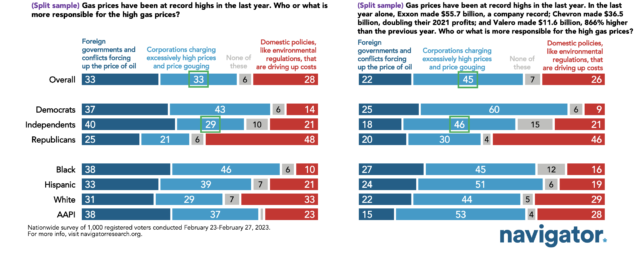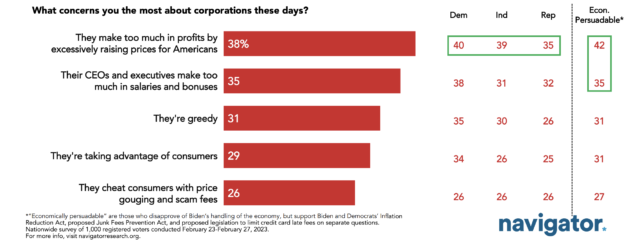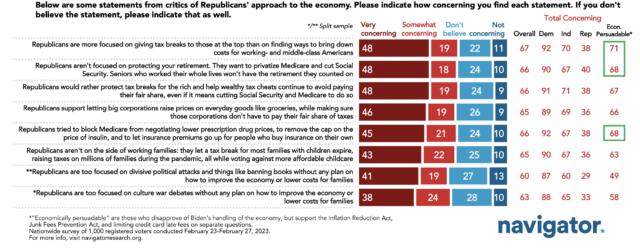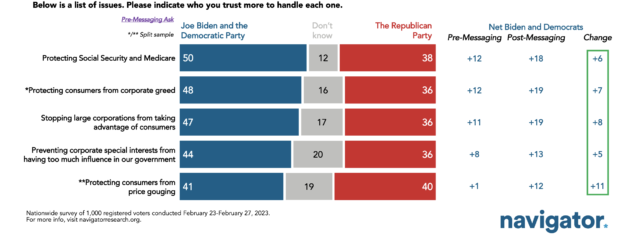- Most Americans support raising the debt ceiling, and messaging about the consequences of defaulting is more effective at driving up support than information about how many times it has been raised in the past.
- The Inflation Reduction Act remains broadly popular, and large majorities of Americans across party lines support the Junk Fees Prevention Act and legislation to limit credit card late fees.
- Top concerns of Republicans’ approach to the economy include giving tax breaks to those at the top and privatizing Medicare and Social Security; this messaging improves trust in Biden and Democrats over Republicans on a range of economic issues.
More Than Half of Americans Support Raising the Debt Ceiling
Nearly three in four Democrats support raising the debt ceiling (74% support), along with a plurality of independents (47%, while 22% are not sure). One in three Republicans (33%) also support raising the debt ceiling, though 57% oppose.
Highlighting the Consequences of a Default Drives Up Support, While Highlighting History on Debt Limit Reduces It
Communicating on the consequences of default around Social Security, Medicare, and veterans’ benefits increases support from net +20 to net +29, while talking about the number of times it has been raised actually decreases support from net +20 to net +11.
The Inflation Reduction Act Remains Deeply Popular, As About Half of Americans Are Hearing About It
More than nine in ten Democrats (93%), three in five independents (61%), and two in five Republicans (43%) support Biden and Democrats’ legislation. Democrats are hearing about it the most (57%), as are 51% of Republicans and 40% of independents.
The Junk Fees Prevention Act and Limits on Credit Card Late Fees Earn Overwhelming Bipartisan Support
More than three in five independents (64%) and Republicans (62%) support Biden and Democrats’ Junk Fees Prevention Act; even higher shares support their plan to lower limits on credit card late fees (74% independents, 68% Republicans).
Fees Related to Banking; TV, Phone, and Internet; and Credit Are Most Bothersome to Americans
Economically persuadable Americans* find overdraft fees (48%) the most bothersome, followed by credit card late fees (39%) and early termination fees for TV, phone, or internet (36%).
Views of Gas Prices in the Short- and Long-Term Remain Negative
The share saying they’re paying more for gas now compared to a few weeks ago has fallen by 7 points (from 69% paying more in early February to 62% now), including a 10-point decline among Republicans (from 79% to 69%).
Talking About Record Gas Company Profits Drives Up the Share Who Blame Corporate Greed for High Gas Prices
One in three blame oil companies for high gas prices (33%), but that share rises to 45% when shown proof points about record-breaking profits oil companies have made.
Americans Are Most Concerned That Corporations and Their CEOs & Executives Are Making Excessive Profits
Corporations making “too much in profits by excessively raising prices for Americans” is the top concern across party lines, while concerns about “price gouging and scam fees” are not as acute (26% concerned about this most overall).
- Among economically persuadable Americans*, corporations making too much by raising prices on Americans is most concerning (42%).
Top Concerns About Republicans’ Handling of the Economy: Helping Those at the Top; Privatizing Social Security/Medicare
Among economically persuadable Americans*, the strongest arguments center on Republicans’ focus on giving tax breaks to those at the top (71% concerning), privatizing Medicare and Social Security (68%), and opposing efforts to cut healthcare costs (68%).
After Messaging About the Republican Agenda, Democrats’ Advantage On A Range of Economic Issues Grows
Before messaging, Americans trust Biden and Democrats and Republicans almost equally on “protecting consumers from price gouging” (net +1 Democrats); after messaging, Americans trust Biden and Democrats by a 12-point margin.
- Biden and Democrats’ advantage on each tested economic issue improves by at least 5 points.

